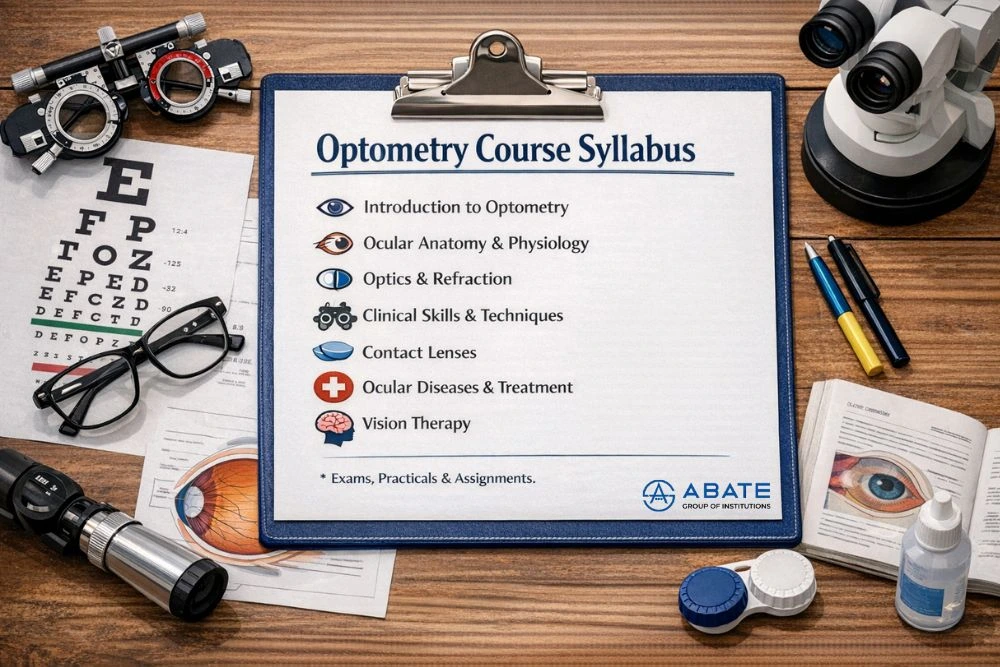Eye Health Awareness: How Optometrists Help Prevent Common Vision Problems

Good vision plays a vital role in our quality of life, from academic performance to professional success and everyday well-being. Yet, millions of people worldwide face vision problems that often go undiagnosed or untreated until they become severe. This makes eye health awareness an essential part of public health. Optometrists, as primary eye care professionals, play a critical role in detecting, preventing, and managing common vision issues.
Institutions like Abate Institution are at the forefront of nurturing future optometrists who are trained not only in diagnosing eye problems but also in raising awareness about preventive care. By educating communities and delivering clinical services, optometrists bridge the gap between eye care needs and accessible solutions.
The Importance of Eye Health Awareness
Eye conditions often develop silently. For example, refractive errors like myopia (nearsightedness), hyperopia (farsightedness), and astigmatism may progress gradually, while more serious conditions such as glaucoma or diabetic retinopathy can cause irreversible damage if left untreated. Unfortunately, many people ignore early signs like blurry vision, eye strain, or frequent headaches, considering them minor inconveniences rather than indicators of underlying problems.
Awareness campaigns, screenings, and education provided by optometrists can help individuals understand that timely diagnosis and treatment are essential for preserving vision. Early intervention not only corrects existing issues but also prevents complications that may otherwise lead to partial or complete vision loss.
Common Vision Problems Optometrists Address
- Refractive Errors
These are the most widespread vision issues and include nearsightedness, farsightedness, and astigmatism. Corrective lenses and lifestyle advice from optometrists ensure clear and comfortable vision. - Presbyopia
Commonly seen in adults over 40, presbyopia affects the eye’s ability to focus on near objects. Regular check-ups help patients adapt with proper eyewear. - Glaucoma
Known as the “silent thief of sight,” glaucoma often shows no early symptoms but causes permanent damage to the optic nerve. Optometrists play a crucial role in detecting it early through pressure checks and vision field tests. - Dry Eye Syndrome
Increasing screen time and environmental factors have made dry eye a frequent complaint. Optometrists recommend lifestyle modifications, artificial tears, or advanced treatments depending on severity. - Diabetic Retinopathy
With rising diabetes cases, eye complications are also becoming more common. Optometrists conduct retinal screenings to identify early changes and refer patients for timely medical care.
How Optometrists Promote Prevention
Optometrists are not just problem-solvers; they are educators and advocates for eye health. Some preventive approaches include:
- Routine eye exams: Encouraging individuals of all ages to undergo regular check-ups.
- Lifestyle guidance: Advising on screen time management, nutrition for eye health, and proper lighting conditions.
- Community outreach: Conducting vision camps and awareness programs in schools, colleges, and workplaces.
- Early detection: Identifying potential eye issues before they escalate into chronic conditions.
By combining clinical expertise with preventive education, optometrists empower people to protect their vision throughout life.
The Role of Education in Building Skilled Optometrists
Producing skilled professionals requires high-quality education, and this is where institutions like Abate Institution play an instrumental role. Their commitment to academic excellence and hands-on clinical training ensures that students are not only equipped with technical knowledge but also the compassion and awareness needed to serve communities effectively.
In India, reputed bsc optometry colleges in chennai and bsc optometry colleges in coimbatore are setting benchmarks by offering structured programs that blend classroom learning with real-world clinical exposure. Graduates from these programs are capable of diagnosing a range of conditions, recommending corrective measures, and promoting preventive eye care practices that make a real difference.
Conclusion
Eye health awareness is the first step toward preventing vision problems that can limit opportunities and quality of life. Optometrists, supported by strong academic institutions, are essential in spreading this awareness and ensuring timely intervention for millions of people.
By highlighting the importance of regular check-ups, lifestyle changes, and preventive measures, optometrists not only treat vision problems but also help individuals maintain healthier eyes for the future. Institutions like Abate Institution, along with established colleges across Chennai and Coimbatore, continue to shape professionals who will lead this mission with expertise and dedication.


